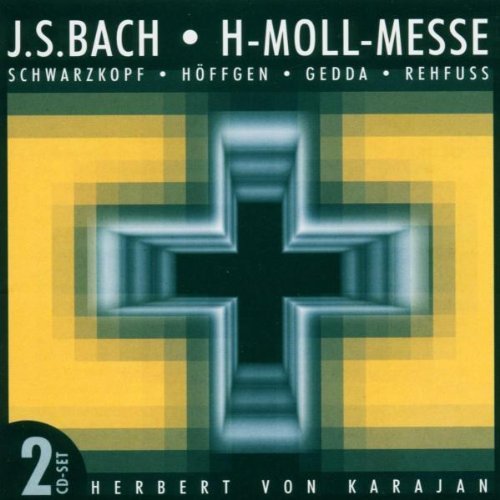|
| This is my post from this week's Tuesday Blog. |
Over the years, we have programmed sacred music – and especially organ music – during the Lenten season on the Tuesday Blog, and this week’s installment of Once Upon the Internet is one of those programs. No organ works this year – you’ll have to wait for our Friday Blog and Podcast later this week for your dose of organ music!
The sacred catalog of Johann Sebastian Bach includes many church cantatas, the Passions and other great vocal works, and a single complete Mass, in B Minor.
It was unusual for composers working in the Lutheran tradition to compose a Missa tota (that is, a mass that conforms to the Catholic “ordinary of the Mas”) and Bach's motivations remain a matter of scholarly debate.
After the death of Augustus II in 1733, five months of mourning followed, during which all public music-making was suspended. Bach used the opportunity to work on the composition of a Missa, a portion of the liturgy sung in Latin and common to both the Lutheran and Roman Catholic rites. His aim was to dedicate the work to the new sovereign Augustus III, a Catholic, with the hope of obtaining the title "Electoral Saxon Court Composer” (Bach eventually was made court composer to Augustus III in 1736.)
In the last years of his life, Bach expanded the Missa into a complete setting of the Latin Ordinary. Indeed, much of the Mass gave new form to vocal music that Bach had composed throughout his career, dating back to 1714 ("Crucifixus"), but extensively revised. To complete the work, in the late 1740s Bach composed new sections of the Credo such as "Et incarnatus est".
It has been suggested that Bach intended the completed Mass in B minor for performance at the dedication of the new Hofkirche in Dresden, which was begun in 1738 and was nearing completion by the late 1740s. However, the building was not completed until 1751, and Bach's death in July, 1750 prevented his Mass from being submitted for use at the dedication; the first documented complete performance took place in 1859.
I have attended my fair share of mass services through the years, and many of them – including readings and homily – typically last anywhere between 45 and 60 minutes, including standing in line for Eucharist. The parts of the Ordinary that are sung (usually in the common tongue) like the Gloria, hardly take more than two minutes.
Bach’s Mass consists of 27 sections and a performance requires over 2 hours; this is not a Missa Brevis!
The Mass in B minor is the consecration of a whole life: started in 1733 for "diplomatic" reasons, it was finished in the very last years of Bach's life, when he had already gone blind. This monumental work is a synthesis of every stylistic and technical contribution the Cantor of Leipzig made to music. But it is also the most astounding spiritual encounter between the worlds of Catholic glorification and the Lutheran cult of the cross.
Italian musicologist Alberto Basso, 1999
The work was first recorded by symphonic choirs and orchestras – I would include today’s 1953 performance in that tradition. From the late 1960s, HIP proponents tried to adhere more to the sounds of the composer's lifetime, who typically wrote for boys choirs and for comparatively small orchestras of Baroque instruments.
Recorded at Musikvereinsaal (Vienna, November 1952) and at Abbey Road Studios (London, July 1953), today’s recording is in fact the second recording of the Bach Mass in B Minor by Herbert von Karajan. The assembled forces are impressive: Wiener Singverein, the Orchester der Gesellshaft der Musikfreunde in Wien (also known as the Vienna Symphony); the Philharmonia and a quartet of soloists that includes Elisabeth Schwarzkopf and Nicolai Gedda.
I found the performance on Liber Liber, an Italian Public Domain site – which is still active today. In order to make tthings easier on everybody, I assembled the sections along the lines of the traditional Mass sections, and uploaded it in two separate parts to the Internet Archive.
Enjoy!
Johann Sebastian BACH (1685 –1750)
Mass in B minor, BWV 232
Elisabeth Schwarzkopf; Soprano
Marga Höffgen, Contralto
Nicolai Gedda, Tenor
Heinz Rehfuss, Bass
Wiener Singverein
Orchester der Gesellshaft der Musikfreunde in Wien
Philharmonia Orchestra
Herbert von Karajan, conducting
Membran 221885 (Reissue from EMI)


No comments:
Post a Comment